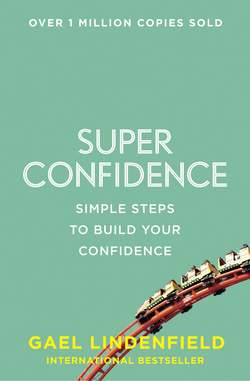Читать книгу Super Confidence: Simple Steps to Build Your Confidence - Gael Lindenfield, Gael Lindenfield - Страница 20
ACQUIRING BELIEF
ОглавлениеYou could take yourself to the library and look up, in the various psychological and therapeutic journals, research studies on the subject of confidence-building, or it might be more rewarding to listen to, or read about, the personal experiences of other people who have overcome problems.
My Own Early Childhood
I had the kind of childhood destined to drain the confidence out of any man, woman or beast. Because of my mother’s alcoholism, I spent the majority of my childhood years in a series of children’s homes. As the eldest of the family, I was a ‘big girl’ and often felt responsible for the care of my brother and sister. Even as a very young child, I can remember sensing the desperate needs of the family and I tried to work out ways of coping. I quickly learned to assume an air of confidence and optimism which masked my own fears and craving for reassurance.
There were many occasions when my attempts to look after myself and my brother and sister were laughed at by adults. Some of the things which I did must have looked pretty funny to any outsider. For example, when I was about seven, and was alone in the house with my younger brother and baby sister, I attempted to make dinner for my sister, who was screaming with hunger. As I was standing on a chair beside the cooker, boiling some unscrubbed, and, presumably, very dirty potatoes, the door was broken open by the police. A social worker came to the kitchen door, burst into laughter when she saw what I was doing, and called the policemen, who also laughed.
Needless to say, my sister was quickly taken from my care and I stood by and silently watched her being placed in a nursery. My brother and I were taken to an even larger, even more impersonal institution, which has no nostalgic happy memories for me.
Our lives continued to be chaotic for very many years to come. Statutory child care, in those days was certainly far from ideal. We were generally bullied and often physically intimidated and abused. The way we were dressed alone indicated to the world that we were second-class citizens. Only occasionally were we taken from this lifestyle to spend some weekends and holidays in the contrasting gentility of my father’s middle-class, professional family. We were ‘odd-balls’ wherever we were, but we learned to be grateful for the small mercies.
The Cost to My Self-esteem
These experiences gradually eroded my inner confidence, but the world saw an intelligent, capable girl who appeared to be infinitely adaptable and deservingly proud of her ‘Good Conduct’ badges. My unconscious, however, sent out signals of distress and extreme lack of confidence. I failed the exam I needed to get into the secondary school of my choice, against all expectations, but there had been no school counsellor or psychologist around to interpret these failures.
By the time I was in my teens, my father had remarried and managed, after a long struggle, to get us out of care and give us a taste of a ‘normal’ family life. But the damage had been done. My mask of confidence and competence had become me. For many years I was even able to kid myself. It was not until my early twenties that the mask began to slip. The first serious depression was treated – very inadequately – by a psychiatrist who arranged an emergency short stay in a mental hospital.
Paying the Price
I then embarked on a disastrous lifestyle, which only those people whose self-esteem is rock bottom seem capable of sustaining. Being a woman, this meant that I slid into relationships with men who overpowered me. I used manipulation and guile, so skilfully developed in my childhood, to get back at the people who hurt me. I chose work (in a helping profession, of course!), to which I was totally unsuited. I failed miserably at it, as a result. In shame, I began to isolate myself socially, spending days and nights locked away on my own.
As my ‘outer confidence’ disintegrated, so I was faced with the blackness of my inner self, and the predictable happened – I made a pathetic attempt to take my life. This was the turning point for me; I decided that I did want to live and that I did want to change. I was fortunate to be referred for psychotherapy to an amazing woman, to whom I have dedicated this book and who has remained a close friend throughout the rest of my life. She opened up the pathway to my new life.
The Road to Recovery
It has taken me very many years to reach the point where I can truly describe myself as a ‘confident woman’ but today I am certainly being rewarded for the struggle. I have a very full life which I thoroughly enjoy. I have family and friends whom I love and who love me. I have work which I find stimulating and satisfying and am confidently planning a future which looks exciting and challenging.
I have told my story because it has given me ‘belief’. For many years, I feared telling the story because I mistakenly thought that people might lose trust in me as a therapist if they knew the ‘truth’ about my background. Of course, I now know that I was wrong and I know that this very personal experience of such problems has given me invaluable knowledge and strength which enables me to give more effective help to others who need to work on their difficulties.
